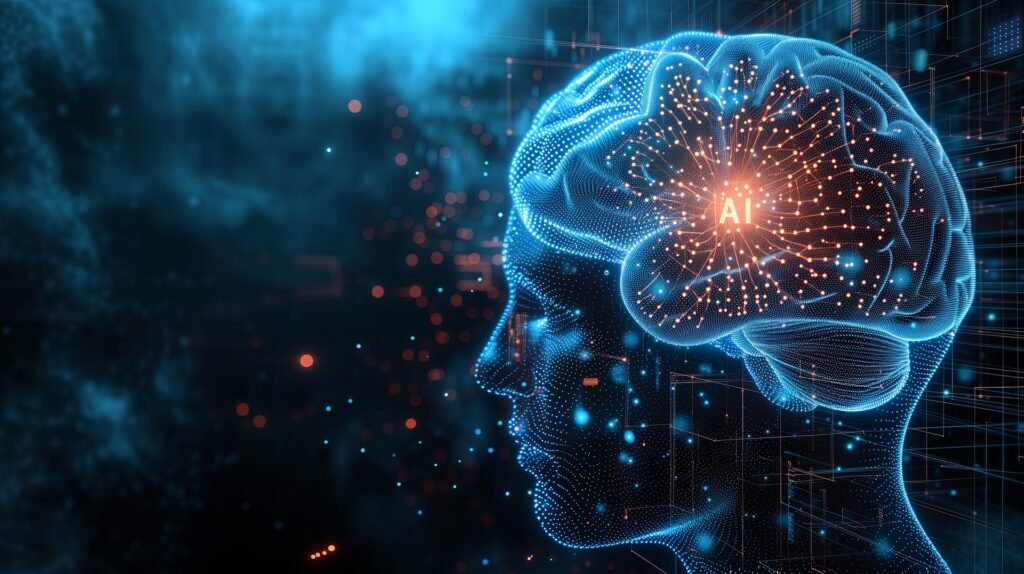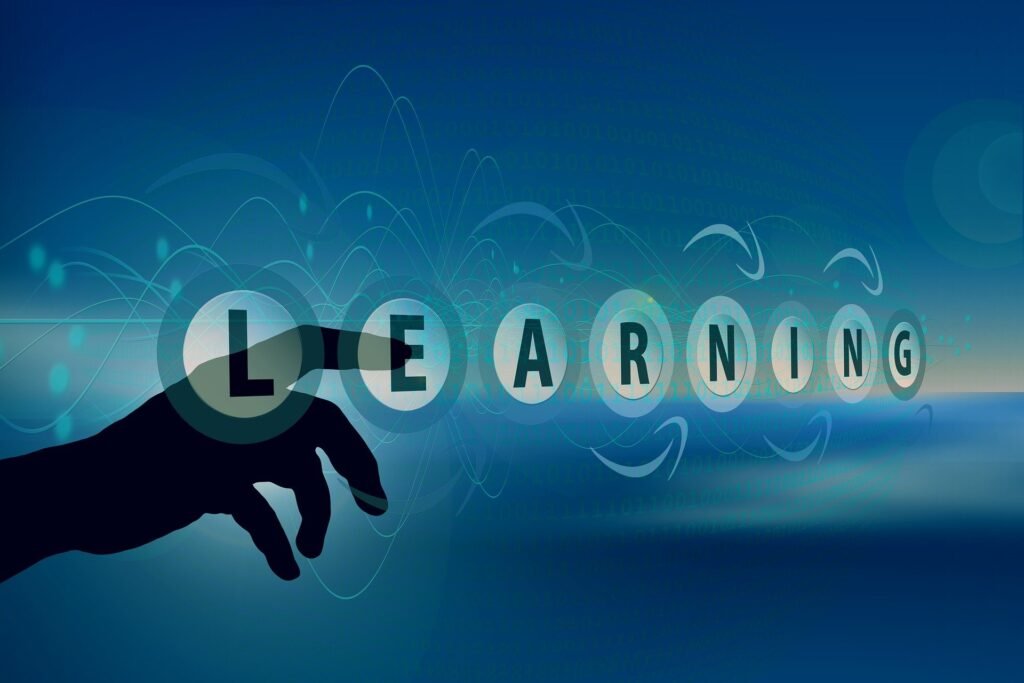As AI continues to evolve, learning about it has become increasingly important. Understanding AI helps individuals and businesses leverage its benefits, stay competitive in the job market, and navigate ethical challenges. Whether you are a student, professional, or entrepreneur, acquiring AI knowledge can open up new opportunities and empower you to use technology effectively. This article explores the role of AI in daily life and why learning AI is essential for future.

Table of Contents
1) Why Learning AI Is Essential in the 21st Century
Learning AI is essential in the 21st century because it is revolutionizing industries, automating processes, and shaping the future of work, making it a crucial skill for career growth and economic competitiveness.
AI enhances efficiency by analyzing vast amounts of data, improving decision-making, and optimizing operations in fields such as healthcare, finance, manufacturing, and education. Businesses leverage AI for customer service, marketing, and cybersecurity, reducing costs and increasing productivity.
The rise of automation and machine learning means that jobs requiring AI knowledge are in high demand, offering lucrative career opportunities.
2) AI For Personal And Professional Use
In today’s rapidly advancing technological landscape, every family member should learn AI to stay relevant in the evolving world. AI is transforming industries and daily life, making it essential for everyone to understand its impact, even if not everyone works in tech.
Learning AI fosters critical thinking, problem-solving, and adaptability, skills that are increasingly valuable in every profession. It enables individuals to better understand and use smart technologies in their homes, from voice assistants to automation tools.
Additionally, AI knowledge empowers family members to make informed decisions regarding privacy, security, and ethical considerations. By understanding AI, people can collaborate more effectively with technology, ensuring they don’t fall behind. It also opens opportunities for creative and entrepreneurial pursuits in a variety of fields.
As AI continues to influence job markets, education, and social systems, having a basic grasp of its principles prepares families for the future. Ultimately, AI literacy becomes a form of digital empowerment, offering families the ability to adapt and thrive in an AI-driven world.

3) AI Assistance In Education
AI has the potential to revolutionize the way children learn, play, and interact with technology. Educational tools powered by AI can personalize lessons, adapting to each child’s learning style and pace.
For example, AI-driven apps can assess a child’s strengths and weaknesses in subjects like math or reading, offering tailored exercises to improve skills. Virtual assistants can help with homework, answer questions, and even provide explanations in simpler terms.
AI also supports creativity, offering interactive games that stimulate problem-solving and critical thinking. With AI’s ability to recognize speech, children can engage in voice-based learning, improving language skills.
Moreover, AI can ensure children’s safety online by detecting inappropriate content and monitoring their digital activity. However, it’s crucial for parents and educators to guide children’s use of AI, ensuring a balance between screen time and real-world experiences.
By fostering responsible AI use, we can enhance children’s cognitive abilities and better prepare them for the future.
4) Awareness On Ethical Usage Of AI
Understanding the importance of AI is crucial in today’s rapidly evolving technological landscape. However, its widespread adoption also brings ethical considerations, requiring careful attention to ensure responsible and fair use.
Understanding its power allows us to harness AI’s potential while mitigating risks and shaping a better future. Education and awareness are vital in ensuring that individuals and organizations can navigate and benefit from this transformative technology.
With the right approach, AI can become a force for good, revolutionizing how we live and work.
5) AI Integration With Kitchens
AI is being integrated into kitchens in various ways, improving efficiency, convenience, and cooking precision. AI is used in devices like ovens, refrigerators, and dishwashers to automate and optimize cooking.
For instance, smart ovens can adjust temperature and cooking time based on the recipe, and smart fridges can track inventory and suggest recipes based on available ingredients.
AI can suggest recipes tailored to your preferences, dietary restrictions, or the ingredients you have at home. Apps and smart assistants like Google Assistant or Amazon Alexa can offer recipe suggestions and help with meal planning.
AI can analyze a person’s dietary needs and health goals, then suggest meals or create custom recipes to meet those objectives.
6) Enhances Personal Productivity
AI can greatly enhance personal productivity by automating mundane tasks, saving valuable time for more meaningful activities.
It provides personalized recommendations, such as in shopping or content consumption, making choices easier and more tailored to individual preferences. With AI-powered assistants, managing daily schedules and to-do lists becomes seamless, ensuring better organization.
Additionally, AI can help individuals learn new skills by offering personalized tutoring or providing detailed feedback. Ultimately, integrating AI into daily life helps optimize time, effort, and personal growth.

7) AI To Track Family Health
AI can play a crucial role in maintaining family health by offering personalized solutions tailored to individual needs. With AI-powered health apps, families can track their wellness goals, monitor nutrition, and schedule regular check-ups.
AI-enabled wearable devices like fitness trackers can analyze real-time data on physical activity, sleep patterns, and heart rate, allowing family members to stay informed about their health.
Virtual health assistants and telemedicine platforms powered by AI allow families to easily access medical advice, reducing the need for frequent doctor checks.
Overall, the integration of AI in family health management enhances well-being, saves time, and ensures that health challenges are addressed effectively.
8) Managing Finances Using AI
AI can greatly enhance the management of monthly house finances by automating tasks like budgeting, expense tracking, and bill payments. With AI-powered apps, users can input their income and expenses, and the system will categorize and analyze spending patterns, offering suggestions for savings and cost-cutting.
AI can also predict upcoming costs based on historical data, helping homeowners plan for future months more effectively. By syncing with bank accounts and credit cards, it provides real-time updates and alerts for overspending or missed payments.
Additionally, AI can generate reports to help users assess their financial health, suggest personalized investment strategies, and even automate recurring payments to avoid late fees. Over time, the system learns user behavior, improving its ability to offer tailored financial advice.
Using AI for household finances not only saves time but also boosts efficiency and financial literacy. Ultimately, AI’s predictive capabilities and smart automation bring ease and clarity to managing monthly household budgets.
9) AI Integrated Systems For Safety And Surveillance
House safety and surveillance have significantly advanced with the integration of Artificial Intelligence (AI), providing homeowners with enhanced security and peace of mind. AI-powered systems, such as smart cameras and motion sensors, can analyze real-time data to detect unusual activity, alerting homeowners instantly via smartphones.
Facial recognition technology enables personalized access control, ensuring that only authorized individuals can enter the home. AI-driven algorithms can distinguish between actual threats and false alarms, reducing unnecessary notifications.
Additionally, AI can monitor home appliances and systems, identifying potential hazards like gas leaks or electrical malfunctions. With predictive capabilities, these systems can anticipate risks and suggest preventive measures. Furthermore, AI-enhanced security devices can be integrated with smart home systems for seamless control, enabling remote monitoring and management.
Over time, AI continues to improve, learning from past patterns to offer even more reliable security solutions. As AI advances, home surveillance becomes more proactive and intuitive, offering a new level of protection for families.

10) Pet Care And Home Cleaning Using AI
AI technology has revolutionized the way we approach house cleaning and pet care, making these tasks more efficient and less time-consuming. Robotic vacuum cleaners, powered by AI, can autonomously navigate and clean floors, identifying obstacles and adjusting their paths for thorough cleaning.
In pet care, AI-driven systems can monitor pets’ health, providing real-time data on their activity, diet, and well-being through connected devices. Smart pet feeders ensure pets are fed on schedule, while AI-based pet cameras allow owners to check in on their furry companions remotely.
Furthermore, AI can analyze home air quality, ensuring pets live in a clean, healthy environment. Overall, AI integration in house cleaning and pet care creates a smarter, more convenient lifestyle for both humans and pets.
Conclusion
AI plays an increasingly significant role in our daily lives, transforming various aspects of how we live and work. AI’s ability to process vast amounts of data quickly allows it to assist in decision-making, often improving outcomes and reducing human error.
While there are concerns regarding privacy and job displacement, AI’s ability to enhance productivity and quality of life cannot be overlooked.
As technology continues to evolve, AI will undoubtedly play a central role in shaping future advancements, making our world more interconnected, efficient, and accessible. As we embrace its potential, it’s crucial to ensure ethical use, safeguarding privacy and ensuring fairness in its implementation.
AI is no longer just a tool of the future; it’s already integral to our present and will continue to shape the world for years to come.

